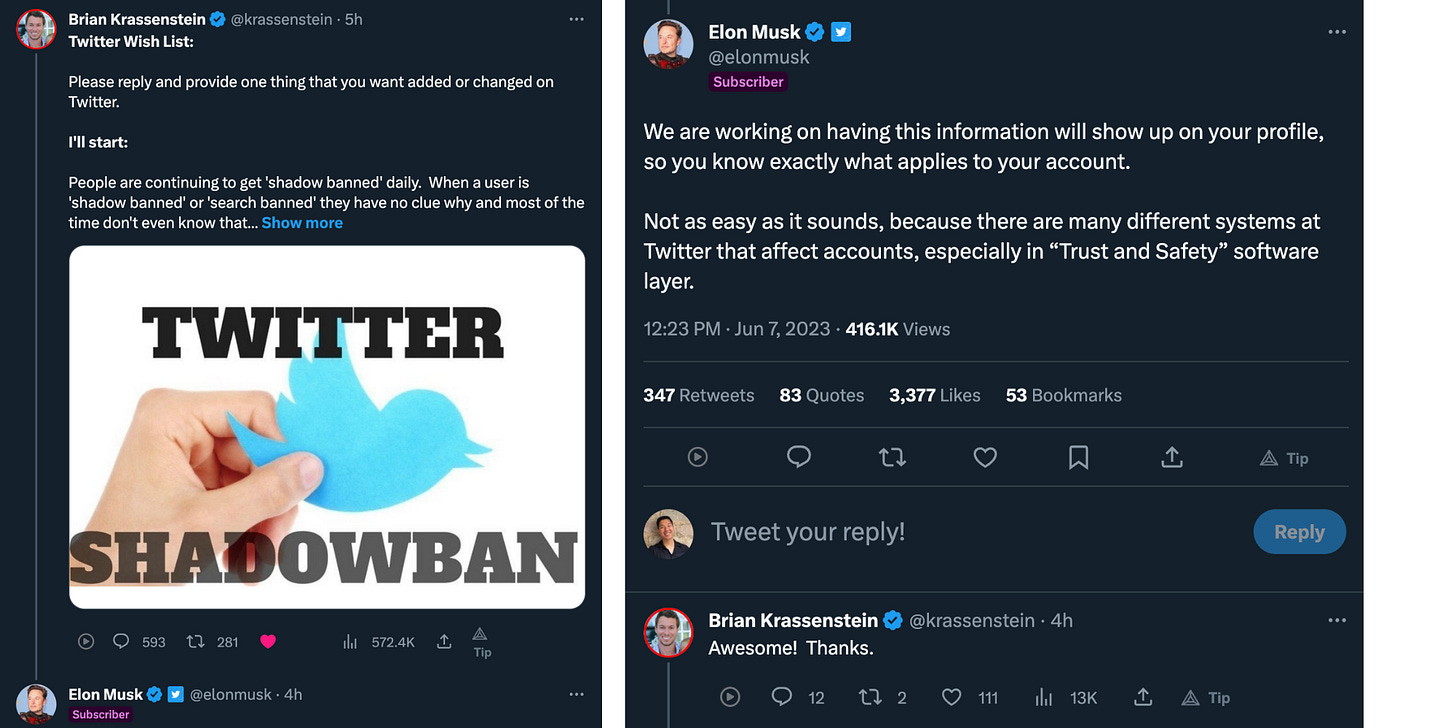The Case for Being a Hyper-Responsive Leader
Product leaders like Naval, politicians like RFK Jr., and the world's best community builders understand that their responsiveness is the fuel that grows and drives movements that change the world.
One of the most impactful lessons I've learned from the past decade of being extremely attentive to who and what succeeds and fails is the power of responsiveness, particularly in community building, product development, and politics.
Responsiveness is the life force behind a movement; it creates a tangible sense of immediate interaction that inspires the people who matter to contribute to that movement’s growth.
Let me explain:
Responsiveness Matters No Matter The Sector
When I reflect on some of the most successful product leaders, they are individuals who are incredibly responsive to user input. For instance, I've been profoundly impressed by Descript, a company whose products I frequently use. They excel at responding to bug reports or feature requests and even follow up by email when a requested feature is released. This level of attention is a powerful way to build brand loyalty, far surpassing any conventional marketing campaign.

Just as impressively, Elon Musk, despite all the demands on his time, makes it a point to engage directly with everyday users on Twitter, acknowledging their feedback about his products.

This interaction from company leadership not only fosters brand loyalty but also enhances the product itself. This culture of not delegating user engagement has clearly spilled over, as seen in my interactions with members of his staff.

Naval Ravikant, co-founder of the new async audio and video startup Airchat, is another excellent example of leadership responsiveness, answering product feedback within a day. He appreciates serious bug reports, thoughtful feature requests, and also just engages with users on the platform.

Shifting to the political landscape, it's evident that people desire interaction with their representatives, much like customers with a company. Presidential candidate RFK Jr., even as a top three candidate on the Democratic Party side, is willing to chat with everyday voters directly. Even presidential candidates should remember they are public servants first and foremost.
When Inbox Zero-Level Responsiveness Makes Sense
It's important to note that I'm not advocating for a President to respond to every single person reaching out to them. That’s absurd.
The degree of responsiveness depends on who you are and the role you've chosen.
For example, if you are a community builder for a 200-person group, you should respond to every community member who messages you; otherwise, it can be demoralizing for these members.
As a builder of communities with just a few hundred or couple thousand people (instead of a 300 million person country), I've committed to an "inbox zero" approach when it comes to responding to people who I have committed to by way of social contract to serve and collaborate with. I spend a significant portion of my day crafting documents, sending messages, and figuring out the best fit for people in different roles. I strive to achieve inbox zero on all key platforms for me including email, WhatsApp, Discord, Twitter, and Telegram within a 24-hour cycle.
While this requires immense dedication and commitment every day, the impact it has on maintaining momentum and fostering community cannot be overstated. Despite the occasional oversight, I remain committed to this level of interaction as it builds relationships and boosts collaboration.
My Standard for Collaborators: Hyper-Responsiveness
In case you're wondering how to work with me, catch my attention, and become a long-term collaborator on projects that matter to me, know that responsiveness is a top-tier trait that I seek in collaborators.
If you express excitement about collaborating with me but fail to respond after a day or two—during a period when I know you're checking your phone and email—I'm going to assume you're not serious about the partnership.
And to be candid, you should respond to me within a few hours if you are in working hours if you want to impress me. While your historical collaboration standards might differ from mine, it seems odd to me when I know you're at your desk working, see a message from me, and choose not to reply, especially if you've expressed excitement about the collaboration. This discrepancy between your actions and stated enthusiasm raises questions and distrust.
Responsiveness matters to me because if you're unresponsive to me, I predict the same pattern will occur with other colleagues and contributors. Responsiveness is essential to me, and I believe it should be valued more universally.
If we look at two people with similar intelligence, talent, and resources, but one is more responsive and thoughtful in their responses, guess who's going to attract more allies, investors, and collaborators? The responsive one.
Conclusion: Become More Responsive to Win More
Responsiveness is the key to successful leadership, whether you're a product leader, a community builder, a political candidate, or someone else in a position of responsibility.
The ability to listen and react thoughtfully to feedback cultivates trust and fosters a sense of belonging in any community. Responsiveness can make the difference between a thriving community and a faltering one, so strive to make it a central part of your leadership strategy. It's not just a courtesy; it's a crucial component of successful engagement and growth.
So, be more responsive, and watch your efforts flourish 🌱






